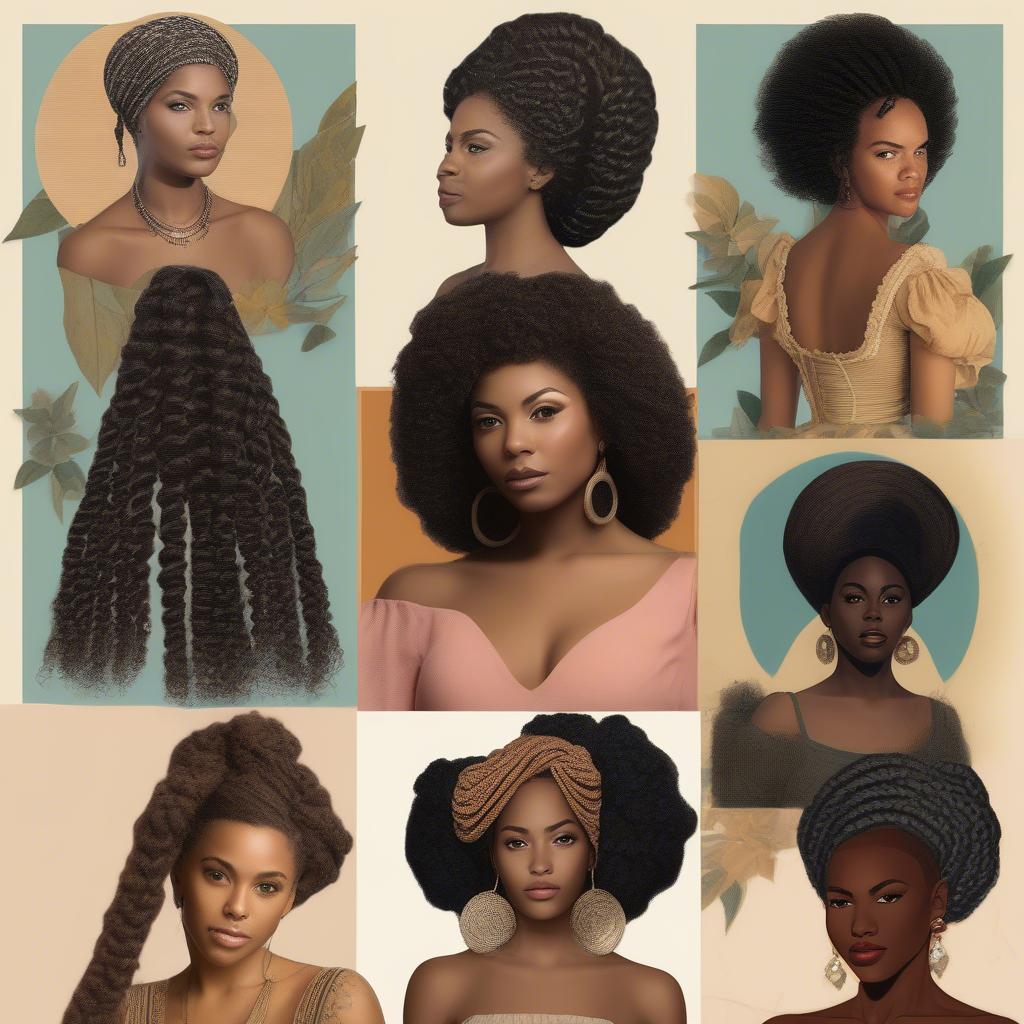Weave Hat
Why Black Women Wear Weaves But Hate Cultural Appropriation
The complex relationship between Black women, weaves, and cultural appropriation is a nuanced conversation. This article delves into the historical and cultural significance of weaves in the Black community, exploring why Black women wear weaves and why the adoption of these styles by others can be perceived as cultural appropriation.
The History and Significance of Weaves in Black Culture
For centuries, Black hair has been a site of both cultural expression and political contention. Weaves, extensions, and wigs hold a unique place in Black history, representing far more than just a hairstyle. They’re a form of self-expression, a symbol of resilience, and a tool for navigating a society that often devalues Black features. From the elaborate braided styles of ancient Africa to the wigs worn by free Black women in the 18th century as a symbol of status, hair manipulation has always been a powerful form of resistance and self-affirmation. Weaves allowed Black women to conform to Eurocentric beauty standards while simultaneously celebrating their own unique heritage.
 Black Women's Historical Hairstyles
Black Women's Historical Hairstyles
Why Do Black Women Wear Weaves?
The reasons are diverse and personal. Some women wear weaves for protective styling, safeguarding their natural hair from damage. Others embrace the versatility and convenience, experimenting with different lengths, textures, and colors. Weaves can also be a source of confidence, allowing women to express their individuality and feel empowered. For many, it’s simply a personal preference, a way to enhance their beauty and feel good about themselves.
The Fine Line Between Appreciation and Appropriation
While appreciation of different cultures is encouraged, appropriation becomes problematic when it involves the adoption of elements from a marginalized culture without understanding or respecting their original context. This is especially true when the dominant culture profits from these elements while the originating culture continues to face discrimination for the same practices.
Why is it Cultural Appropriation?
When non-Black individuals wear hairstyles traditionally associated with Black culture, it often comes across as costume-like, trivializing the cultural significance of these styles. It disregards the history of discrimination Black women have faced for their hair, and the ongoing struggle for acceptance and representation. It’s the power dynamic that makes the difference. What might be a trendy fashion statement for one group can be a source of prejudice and marginalization for another.
Navigating the Nuances of Cultural Exchange
Open and respectful dialogue is crucial. Education and understanding are key to appreciating the richness and complexity of different cultures. It’s important to be mindful of the power dynamics at play and to avoid reducing cultural practices to mere fashion trends.
“It’s not about policing hairstyles, it’s about acknowledging the historical context and respecting the cultural significance behind them,” says Dr. Anika Smith, cultural anthropologist.
“Cultural exchange should be reciprocal and respectful, not exploitative or dismissive,” adds Dr. Jamal Thompson, sociologist and author of “Reclaiming Our Roots: Understanding Cultural Appropriation.”
Conclusion
The issue of Why Black Women Wear Weaves But Hate Cultural Appropriation is a complex one. Understanding the historical, cultural, and social context is crucial. It’s about acknowledging the lived experiences of Black women and respecting the significance of their cultural practices. By engaging in thoughtful conversations and promoting cultural sensitivity, we can move towards a more inclusive and understanding society.
FAQs
- What is cultural appropriation?
- Why is it offensive to appropriate Black hairstyles?
- How can I appreciate Black culture without appropriating it?
- What are some examples of respectful cultural exchange?
- Why is hair such a significant issue for Black women?
- What is the difference between a weave and a wig?
- What are some common protective hairstyles for Black hair?
Need more support? Contact our 24/7 customer service team at Hotline: +84 388 951 999, Hanoi, Vietnam, or Tech Avenue, Suite 12, San Francisco, CA 94105, USA.
